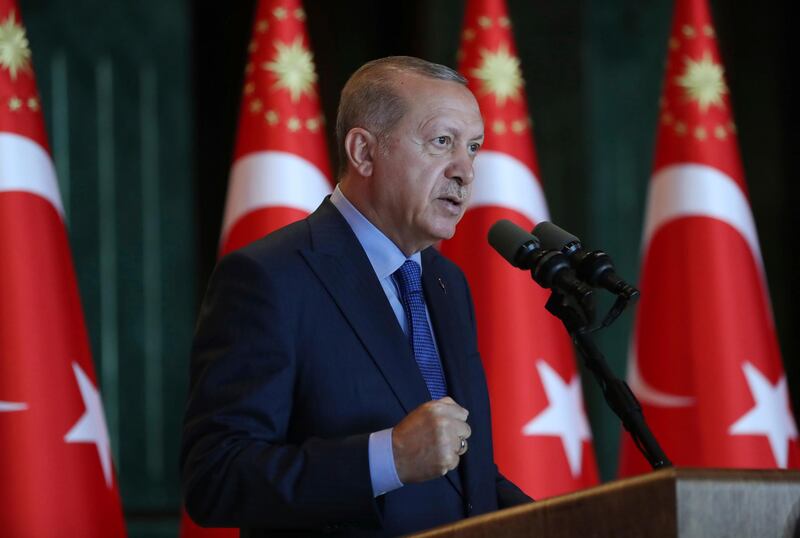Turkish President Recep Tayyip Erdogan says his country will boycott US-made electronic goods amid a diplomatic spat that has helped trigger a Turkish currency crisis.
Showing no signs of backing down in a stand-off with the US, Mr Erdogan suggested that Turkey would stop procuring US-made iPhones and buy Korean Samsung or Turkish-made Vestel instead.
He said: "If they have the iPhone, there is Samsung elsewhere. We have Vestel."
The worsening dispute comes just one month after the Nato summit where the two of the alliances biggest powers came together in a show of unity.
_______________
Read more:
Erdogan says US set deadline for pastor's release
Erdogan tells US: Turkey will find new friends
Turkey's economic crisis is of Erdogan's making
_______________
But the dispute was sparked by a row over the detention of American pastor Andrew Brunson, who was jailed nearly two years ago in the crackdown that followed a failed military coup in Turkey. US President Donald Trump widened the rift with a hostile tweet that announced a doubling of tariffs on steel and aluminium and that said "our relations with Turkey are not good at this time!"
Mr Erdogan also renewed a call for Turks to convert their dollars into Turkish lira, to help strengthen the currency.
The lira has nosedived in value in the past week over concerns about Mr Erdogan's economic policies and after the US, which had been angered by the continued detention of the American pastor, imposed sanctions on Turkey.
Behind the scenes, however, diplomatic dialogue appears to have resumed. Turkey's state-run news agency and US officials say US National Security adviser John Bolton had met with the Turkish ambassador to Washington on Monday.
That helped ease tensions in financial markets, with the Turkish lira stabilizing somewhat near record lows. It was up 5 per cent on Tuesday, at 6.55 per dollar, having fallen 42 per cent so far this year, with most of those losses coming in recent weeks.
Investors are worried not only about Turkey's souring relations with the US, a longtime Nato ally, but also Erdogan's economic policies and the country's high debt accumulated in foreign currencies. Independent economists say Erdogan should let the central bank raise interest rates to support the currency, but he wants low rates to keep the economic growth going.
In a joint statement issued Tuesday, the industrialists' group TUSIAD and the Union of Chambers and Commodity Exchanges called on the government to allow the central bank to raise interest rates to help overcome the currency crisis.
The business groups also urged diplomatic efforts with the United States and an improvement in relations with the European Union, which is Turkey's major trading partner.
The state-run Anadolu Agency said the finance chief would address hundreds of foreign investors on Thursday in a teleconference.





